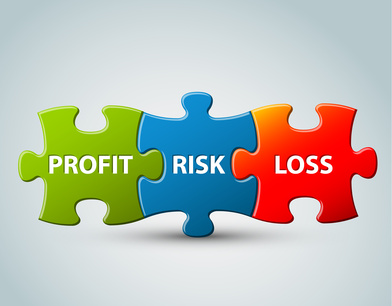Risk is not in and of itself a bad thing. In fact, it is absolutely vital to trading. Without risk, there is no reward and, thus, no reason to ever make a trade. The critical piece to identify is if you are being compensated appropriately for the risk you are taking. The way to determine this very important question involves two separate analyses:
- Risk/Reward ratio
- Expected Value
Risk/reward ratio is very straight forward. You take a given event, determine what the maximum amount of money you can make, determine the maximum amount you can, lose and then simply divide the two. That gives you your reward/risk ratio. What you do with this number is quite subjective. Is a risk ratio of 1.5:1 acceptable? How about 5:1? That is nearly impossible to tell unless you put this reward/risk ratio in context.
Enter the concept of expected value. Expected value is simply assigning a probability to a reward/risk ratio (or series of outcomes) to provide the necessary context to make a valid assessment of risk.
Let’s take the very simple example of a game with a coin. Step right up! You pay me $1.00 to play, if heads comes up, you lose, I keep your dollar. If tails comes up, you win and I pay you $1.50! So, we can easily compute our reward to risk ratio. The most we can make is the $1.50 if tails comes up and the most we can lose is the price to play the game of $1.00 which yields a ratio of 1.50/1.00 or 1.5:1. Is this good? We can’t know until we put the reward to risk ratio into context. We have two outcomes, heads or tails, each with an equal probability (50%). We employ the following equation.
- Probability of Event “A” x Profit Effect of Event “A” + Probability of Event “B” x Profit Effect of Event “B”+ …
- Event A = Heads
- Event B = Tails
Using the above formula, we get: 0.50 x (-1.00) + 0.50 x (1.50) = -0.50 + 0.75 = 0.25.
Theoretically, anything with a positive expected value is a trade that you could make. You “expect” the outcome to be in your favor. The threshold for what is “enough” expected value is purely a personal one.
#####
For more from Michael Shorr and tradingadvantage.com, please click here.




